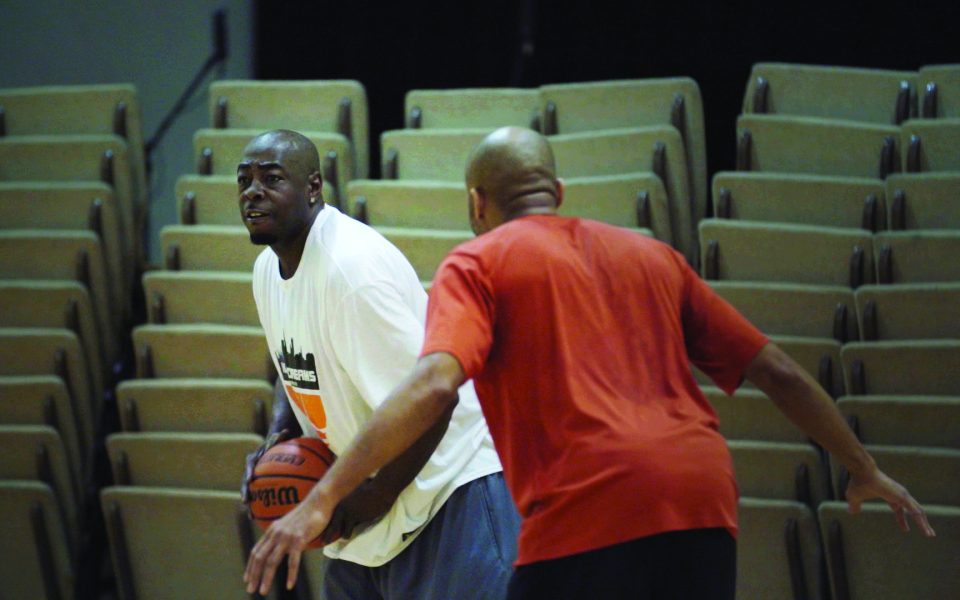Featured photo: A still from the documentary Subject
Life was never the same once the cameras stopped rolling.
For some documentary subjects, the films led to instant celebrity and a sense of status. Others, however, dealt with the negative emotional impact of having their life’s most traumatic moments exposed to and criticized by the public.
“I can’t describe how painful it is to relive my mom’s death over and over again,” says Margie Ratliff, the daughter of Michael Peterson.
In 2004, Ratliff and her family were the subjects of The Staircase, a popular docuseries based in Durham that covers the trial of Peterson, who was convicted of murdering his wife Kathleen Peterson in 2003.
Through interviews with documentary participants, filmmakers and film critics, Subject takes a harrowing look at the lives of subjects of well-known documentaries as they give firsthand accounts of living life under the microscope and the chaotic aftermath.
“The subject is now being given a chance to reveal what is not revealed in the film and their own experience of it,” says filmmaker Kirsten Johnson.
In a little more than an hour and a half, Subject manages to shed light on a variety of documentaries ranging in topics, but mainly focuses on the subjects of a select few. Arthur Agee, from a poor neighborhood in Chicago, dreamed of making it to the NBA and starred in Hoop Dreams (1994) after being recruited to play basketball at a predominantly white high school in Westchester, Illinois. Cinematographer Ahmed Hassan speaks of a personal responsibility as a protestor documented the events of the 2011 Egyptian Revolution in The Square (2013). The Egyptian media was ecstatic when The Square was nominated for the Academy Award for Best Documentary Feature during the 86th Academy Awards, offering him money and interviews. But when those who Hassan protested against watched the film, everything changed.
“Now, Egypt is so dark,” Hassan says. “I cannot use my camera. I’m not safe.”
Subject also stars Mukunda Angulo, one of seven homeschooled children indefinitely confined to a small Manhattan apartment by their father, only leaving for the occasional and strictly-supervised family trip. The Wolfpack (2015) shows what happens when Angulo and his six brothers defy their father and truly experience the outside world and social situations for the first time.
During the course of the film, Margie Ratliff speaks of the inability to move on from the events in The Staircase because others won’t let them go. Filmmakers found the events and media frenzy of The Staircase (2004) so interesting it led to two additional works — The Staircase (2018) on Netflix and The Staircase (2022) on HBO Max. When “Game of Thrones” star Sophie Turner was cast to play Ratliff in the HBO Max version, and she was asked to discuss the role with Turner, Ratliff knew then her experience was taken as a joke.
“So you want me to talk about the most traumatic points in my life that I have spent decades in trauma therapy over with an actress who then gets paid to play me?” Ratliff says in the documentary.
Ratliff didn’t end up participating in the HBO version.
The film also features filmmakers and critics who discuss the cultural impact of documentaries and why the people in the stories should be the same ones who tell them.
According to filmmaker Assia Boundaoui, directors fail to think about how subjects are later affected by appearing in documentaries and the repercussions of having distressing or personal experiences exploited.
“There’s like this unspoken agreement that the subject will never talk about the process of being in the film,” she says.
As Subject shows, some rules are made to be broken.
Subject is screening for free at Reynolds Place Theatre April 22 @ 4 p.m. as part of this year’s Riverrun Film Festival. After the screening there will be a panel discussion with Arthur Agee from Hoop Dreams about the ethics of documentary filmmaking. Sponsored by the Wake Forest University Documentary Film Program.
Join the First Amendment Society, a membership that goes directly to funding TCB‘s newsroom.
We believe that reporting can save the world.
The TCB First Amendment Society recognizes the vital role of a free, unfettered press with a bundling of local experiences designed to build community, and unique engagements with our newsroom that will help you understand, and shape, local journalism’s critical role in uplifting the people in our cities.
All revenue goes directly into the newsroom as reporters’ salaries and freelance commissions.


Leave a Reply